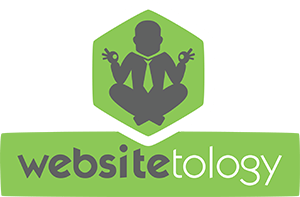Come one, come all- and learn how to make Google your best friend- without having to pay for placement.
All the tips, tricks and skills to build a site that you can manage- and gets results.
See the Schedule, Seminar and Sign-up links above to get registered.
These will be held at The Next Wave, 100 Bonner Street, Dayton OH 45410 unless we notify you differently.
Full day seminar, Tuesday May 8, from 8:30am to noon, then 1:30 to 5pm
Intro course in the morning- $49
Advanced in the afternoon – $49
or the whole day- $79.
This course is scheduled for The Next Wave offices.
Journalists used to be held in high regard for reporting “just the facts”- with a strict wall between the news and business operations- then that started to crumble- and next, even the facts started getting mixed with opinions.
If anyone has ever been quoted by a reporter- you instantly realize that context is the key to sounding smart- or stupid.
So- the ability to publish by anyone, thanks to easy Open Source Content management systems (blogs) like WordPress – now allow the interviewee to publish their side- even before the reporter does. Many interviewee’s even demand all interviews be done by e-mail, to provide a written record- so there can be no misquotes.
This article about the shift- and the excerpt are an interesting look into the future of journalism- all forms. The last line of the excerpt- is what is most key to any website: “It is being the smartest, or most useful, or most reliable” which will help your business put the win in your www effort.
mediabistro.com: Articles: Scooped by a Source
The ability to procure interviews, conduct them professionally, and extract insights from the resulting conversations is commonly perceived as a big part of the value we add as journalists to any news story that involves more than rewriting a press release or regurgitating the minutes from a city council meeting. One school of thought argues that exclusivity never added very much value anyway, or at least it pales in comparison to the value to be gained from reader participation and transparency.
“I think you’re assuming that there is any value left in the scoop,” wrote Jeff Jarvis, blogger and citizen journalism advocate, in an email. “There isn’t. You can’t control the biorhythms of news anymore. The world doesn’t much care who reported what first. Bylines matter to writers, not readers.”
They matter to editors, too. And so do exclusive quotes. While I agreed with Jeff that the scoop-for-scoop’s sake means increasingly little (except in matters of national security and other instances of life-or-death), his stance won’t convince editors that the journalists who borrow the words of a Mark Cuban, or Jason Calacanis (or Jarvis, for that matter) from the logorrhea of their blogs is anything other than lazy. “Ah, but that is what has to change: the editors’ heads,” the journalism school professor replied. “They have to discover what their real value is, and it is not being first with quoted blather. It is being the smartest, or most useful, or most reliable.”
The Dayton Daily News has a front page story about the benefits of having a site that is accessible to the blind. While they mention Google- and their new push in favor of accessibility standards- the real reason is that the Google bot that indexs your site works just like a blind person- and can only navigate where it can follow the meta data and navigation.
The good news for Websitetology graduates- everything we teach you to do- builds accessible sites- that are optimized for the blind- and for Google.
Here is a link to the story- it’s so short- I’ve quoted the whole thing.
Blind users getting help to get on Internet
By Jim DeBrosse
Staff WriterDAYTON | For most Web users, pop-up ads and layered graphics can be annoying. But for blind users, they are major roadblocks on the Internet highway.
But pressure from lawsuits and advocates for the visually impaired has resulted in Web pages that are easier for the blind to navigate using screen-reading equipment.Last month Google introduced a special search engine that ranks sites according to how accessible they are to the blind (labs.google.com/accessible/). Yahoo! also redid its home page within the past month with larger, simpler display options, and AOL will soon follow suit.“More and more companies are going to have to address these issues, not only for the disabled population, but for the aging (baby boomers) who are going to be exerting pressure of their own to access all these technologies,” said Jesse Walker, a human factors research psychologist at the University of Dayton Research Institute.
Walker has been working with several corporations on building more accessible Web pages.
That’s something Nate Fernandes, 21, a senior at the University of Dayton, can appreciate. He uses a popular software program for the blind called JAWS (Java Access With Speech) that enables his computer to read the content on computer screens out loud.
But some items, like PDF files, are often difficult for his equipment to read.
If you want to read more about why and how the Google accessible search works- here is their FAQ:http://labs.google.com/accessible/faq.html
I tried to find information on Jesse Walker, and UDRI in general, but, unfortunately, their site isn’t updated with his info.
If you want a site that works for the blind and for you- come to a Websitetology seminar.

